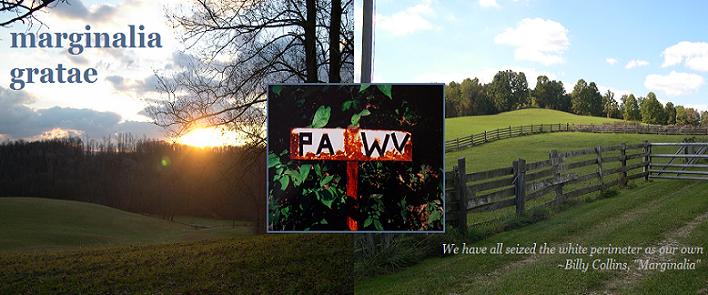I'm doing what many are doing today: remembering. It comes to me in snapshots now, only eight years later, rather than in a neat and consistent narrative. Maybe that is how I experienced it, through the burdened silence and plethoric fog of disbelief and nascent grief. Snapshots.
We thought there had been a terrible accident when we turned on the news. Kurt had come by for breakfast, as was our routine. We sat in my living room, on the loveseat, eating cereal and trying to understand what we were seeing. Even the news team speculated that some freak accident had caused the plane to smash into the tower. Then, in just a glimpse between the towers, the cameras caught the second plane.
That striking, clear sky seems to have worked its way into our collective memory. Calm, still, unchanging blue.
In moments, I tried to get in touch with my friends who were in NYC: Lucy, my oldest and dearest, who worked for Viacom at the time. David, a doctoral candidate at NYU. Both responded. Lucy wanted information; they were in some sort of lock-down in her building in Midtown Manhattan, and little information was coming in. David was across the river, in a laundromat in Hoboken, describing what he saw. I saved those e-mails for a long time. Eight years and several computers later, I'm not sure where those files are.
With the world's attention on New York and, by this time, D.C., the news out of PA was but a footnote, an aside: "Another plane has gone down in rural Pennsylvania, about 60 miles south of Pittsburgh." That's it. No detail. Selfish, I know, but those were the most chilling 14 words I had yet heard. I called my Dad. No answer. I called my mom. No answer. No answer. God.
I finally reached my mother some time later. She hadn't yet heard.
Later, I talked with my friend, Ryan, who lived about a mile from the crash site. He said the sound of impact woke him that morning.
I went to campus. Classes had not yet been canceled. We gathered in our offices and in the hallway, piecing together what we knew, what we thought we knew. In the Midwest, there was increasing anxiety about the security of Chicago. Would it be targeted, too?
Classes were canceled by the late morning or early afternoon; my very dear friend, Bill, and I walked across campus together to let our students, who were likely already on their way to class, know. I spoke to my students briefly--they were already in their seats. I have absolutely no idea what I said.
I spent the rest of the day in the campus cafeteria, huddled around a TV on a tall, rickety media cart with Bill, Nicky, Alex, Peter, Geoff . . . a few others came and went. Alex was feeling particularly bad after chastising the students in his early class for their lack of attentiveness and apparent apathy; he had not yet heard about the attacks when he did so, but they had.
That evening, Kurt and I went to his folks' house. We were all . . . quiet. And even though Kurt and I were not yet married--were not even yet engaged--it was very important, somehow, to be with family. And that's exactly what they were . . . even then.
What is extraordinary to me is the immediacy of these snapshots, fragmented though they may be, and the banality of them. The logical memory recalls, reflects, but the emotional memory seems to evoke, and in doing so eight years could be eight seconds or eight decades: the heaviness, the quietness, press as fully and steadily as they did in those moments eight years ago, slipping, somehow, into timelessness.

